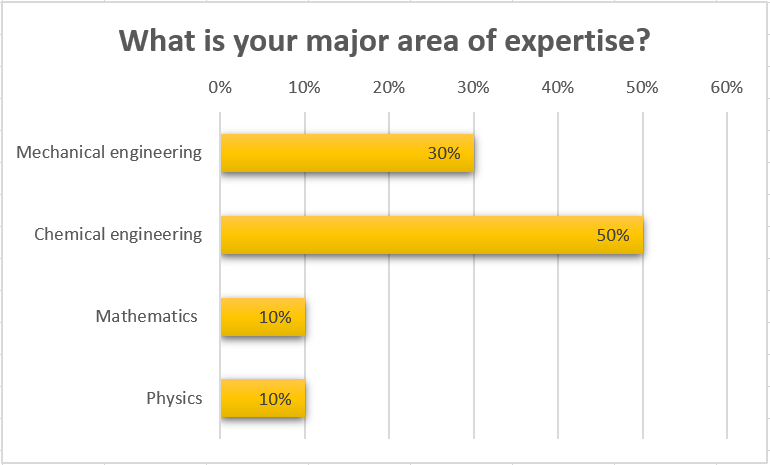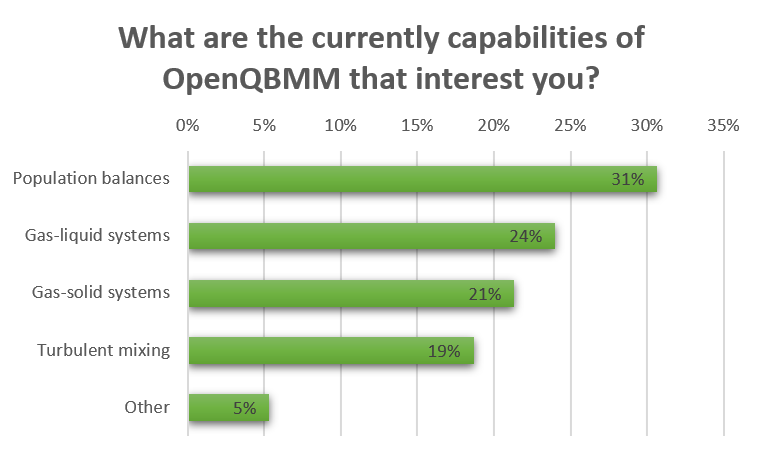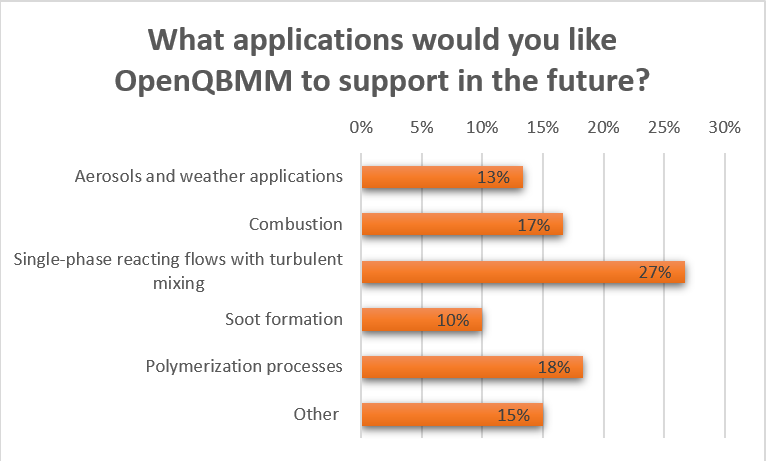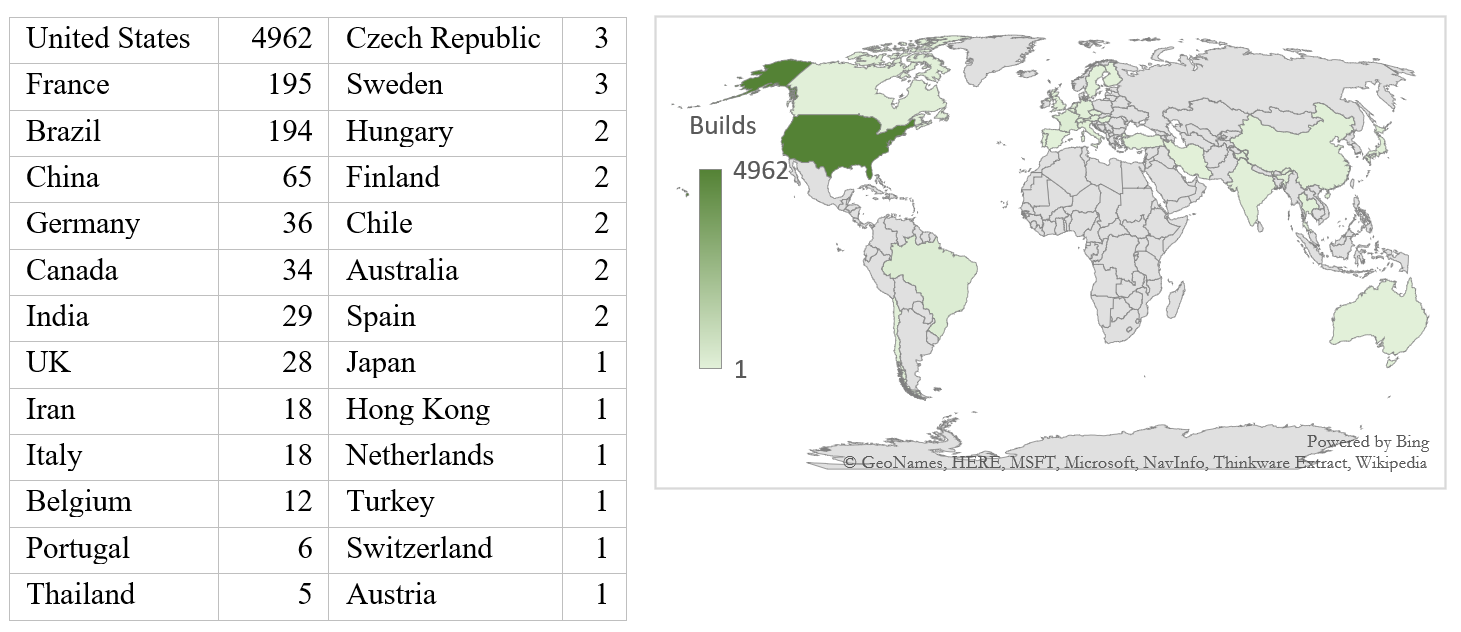Some time ago we have conducted a survey to gather interest in who is using OpenQBMM, what are their areas of interest and what are the desired features in future releases. This survey was part of an effort to better understand the interest of the current and the potential user base of the framework and to target future development efforts and funding requests.
When asked “Do you work in industry or academia?”, 57% of the responded stated they work in academia and 43% work in industry. Of this 43%, 60% declared to work in the chemical industry, 25% in the energy industry, 5% in the water and environmental protection sector, 5% in the automotive industry and 5% in research and development.

Thirty percent of the respondents stated their area of expertise is in Mechanical Engineering, 50% in Chemical Engineering, 10% in Mathematics and 10% in Physics.
The feature respondent found more interesting among those currently implemented into OpenQBMM was the implementation of solvers for population balance equations (31%), followed by methods for polydisperse gas-liquid flows (24%), for gas-solid flows (21%), turbulent mixing (19%).
Finally, when asked what features respondents would like to see in the future releases of OpenQBMM, the most frequent response was “single-phase reacting flows with turbulent mixing” (27%). Models for polymerization processes was the second most requested feature (18%), followed by combustion applications (17%), while 13% of the responses indicated an interest in aerosol and weather applications.
We also collected statistics of cumulative builds of our source code by referring to an URL in our build script. Users are informed of this procedure before building and may opt out. We use this approach mostly to have an approximate count of downloads, since the OpenQBMM code is distributed via GitHub, which only provides clone count for two weeks. This approach also allows to determine the geographical distribution of our users. Data refer to the period between September 2015 and March 2019 and exclude builds by the development team.



